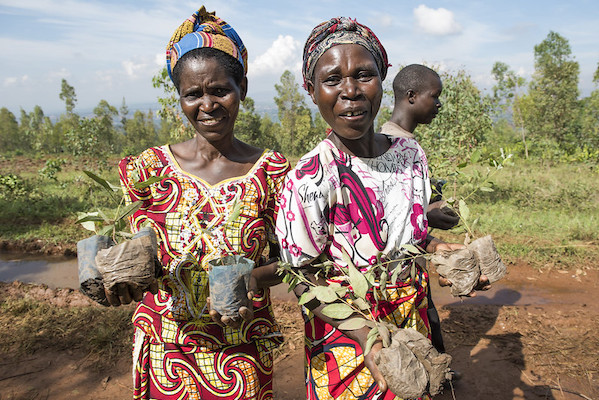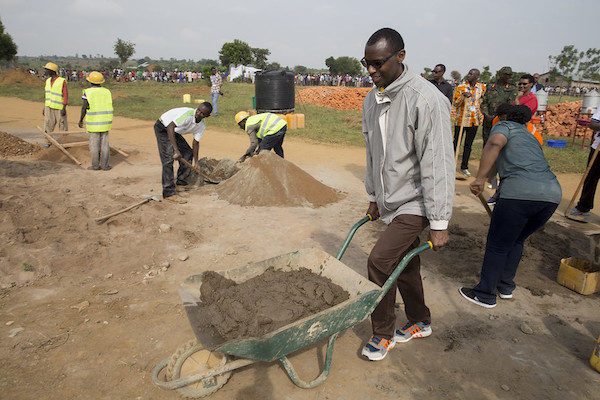RWANDA
What Are You Doing on Saturday?
By Carina Cordero Brossy
Matthews, NC, United States
What are you doing the last Saturday of every month? Well, if you are a citizen of Rwanda, this Saturday morning is booked. Once each month, all Rwandan citizens commit to a day of community service in an event called Umuganda.
History
Translated as “coming together to achieve an outcome,” Umuganda is deeply rooted in Rwandan culture as a way family and friends support one another during difficult situations. In 1974, the Rwandan government established a national Umuganda with strict rules and non-participation penalties. This once-traditional form of solidarity thus fell under state control, which created unease among the citizenry.
Lost Tradition
The grisly Rwandan genocide of 1994 brought greater mistrust and distortion of this tradition, because its meaning was twisted into justification for seeking out and destroying the Tutsi people (70 percent of all Tutsis perished within the 100-day genocide). It wasn’t until 1998, as Rwanda sought to rebuild a unified nation, that Umuganda was reintroduced.
Restoration
Today, Umuganda takes place on the last Saturday of the month. Out of a population of over 14 million, all able-bodied Rwandan citizens ages 18 to 65 are required to participate in structured, monitored local service. These initiatives are credited with an enormous number of improvements: building schools, constructing health centers, tending cooperative gardens, cleaning roadways, recycling waste, planting trees, among others. In addition to creating a vehicle for public service, Umuganda also creates a platform for local project leaders and community members to exchange information and concerns.
Scope of Service
According to the Rwanda Governance Board, from July 2015 to June 2016, 91 percent of the population participated in this activity, which equates to more than RWF 19 billion (Rwandan francs) in human services. Given that state law now forbids you to mention your ethnicity, use plastic bags, or neglect your duty on an Umuganda day, Rwanda has clearly emerged from its difficult past. The world can now see the possibility of a more unified, progressive African continent.
Have a suggestion for this story? We’d love for you to submit it!


Blank
Blank
Math Resources
- During an Umuganda service on a Saturday, a community of villagers must clear a five-hectare field of banana plants to prepare it for a new crop. If 10 villagers can clear and process one hectare in three hours, how many villagers are needed to clear and process the entire field in three hours?
- In 2016, Rwanda’s capital, Kigali, had about 986,000 inhabitants, with 82 percent participating in Umuganda projects. How many Kigalians took part in Umuganda that year?
- The monetary value of Kigalians’ Umuganda service equaled RWF 2.2 billion (Rwandan francs) in 2016. What is the value per person?
Social Justice Questions
- Do you think someone should be penalized for not engaging in community service? What do you think the Umuganda participation rate would be if there were no penalties?
- Are you more or less motivated to do helpful tasks that are mandatory?
- What are other incentives for serving in the community besides the desire to avoid being penalized?
Explore Further
- News story on Umuganda’s impact
- Building a road through Umuganda
- Details about the economic consequences of Umuganda
- Video about Umuganda’s role in clearing Rwanda of litter
Share Your Story
Write your own Global Math Story and send it to us!
Sorry, the comment form is closed at this time.